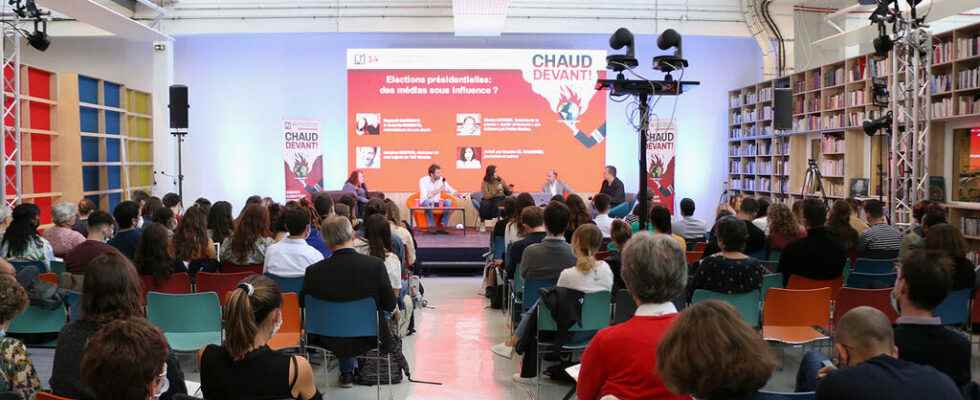As every year in the run-up to the International Journalism Conference, the Viavoice polling institute publishes its barometer on the usefulness of journalism. How do the French perceive the profession?
Electoral context obliges, for the 6th edition of its barometer on the usefulness of journalism, the Viavoice institute focused on the journalistic treatment of politics. The study published this Saturday reveals that the quality of information provided by journalists during the presidential campaign was “good” for 57% of French people. A number ” rather comforting for the profession, which regularly suffers from a somewhat harsh judgment », Considers Jérôme Bouvier, president of Journalism and Citizenship and organizer of the International Meetings of Journalism.
During this campaign, three-quarters of French people chose television to get information, surely because of the broadcasting of debates between the candidates. Then come the radio, the written press and the internet. If they found information there on the programs or the issues of this election, the French ensure for a large majority that the media did not influence their choice, once in the voting booth.
Media concentration questioned
Trust in the media varies greatly according to the subjects covered by the newsrooms. Thus, if political news interests a large majority of French people, its treatment by journalists arouses the mistrust of nearly one in two respondents (48%). Conversely, when it comes to cultural, sporting, economic or even environmental news, 60 to 82% of French people qualify as confident.
The supposed lack of objectivity of journalists is clearly to blame. More than 60% of respondents believe that the media do not treat all political tendencies in the same way. They are as much to find as journalists and politicians are dependent on each other.
► Also to listen: The report to the media of the candidates of an atypical presidential election
Media concentration could fuel this perception. More than 80% of respondents believe that this phenomenon undermines democratic debate, and 65% that this concentration would limit the editorial independence of journalists belonging to press groups.
A crucial role in times of crisis
Another lesson from this study is that journalism is a profession deemed all the more useful in times of crisis. Ninety percent of respondents say so, 4 points more than before the pandemic.
Faced with issues that are not always familiar, such as questions of geopolitics, journalism seems to demonstrate its importance even more. Nearly three French four consider it essential to better understand the war in Ukraine. Its treatment by the media enabled a little more than 60% to form an opinion on the responsibilities in this conflict, and to as many to avoid the trap of false news.
A large majority of those questioned – 91% – are also aware of the explosion of rumors and fake news on the web. That’s 3 points more in a year. More than three out of four French people therefore trust information from professional media, much more than their relatives or social networks.
The only shadow in the picture of the journalistic treatment of this war, its place in the political debate, in the middle of the presidential campaign, and its use by the most radical candidates. Nearly half of the French people found this treatment oriented and sensational. Sign of a requirement, according to the Viavoice institute, rather than mistrust on the part of the French.
► Also to listen: How the media seizes the climate emergency
The 15th International Journalism Conferencewill take place in Tours, south of Paris, from May 9 to 13, in partnership with France Télévisions, Radio France, the Journal du Dimanche and France Media Monde.
